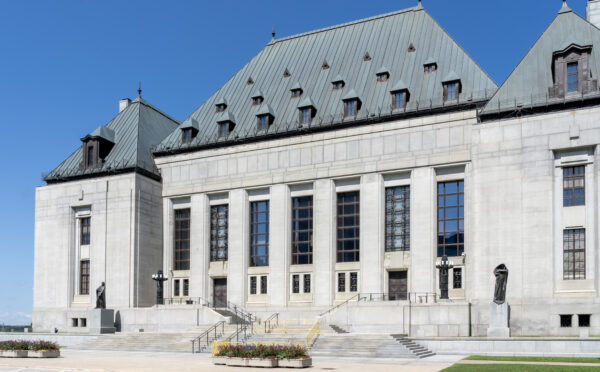On July 16, 2024, the British Columbia Court of Appeal released its decision in Brar v. British Columbia (Securities Commission), 2024 BCCA 265. This case affirms that the B.C. Securities Commission’s power to compel evidence from witnesses and, where the individual does not comply, ask the court to find them in contempt is constitutional.
In coming to this finding, the Court relied heavily on the Supreme Court of Canada’s 1995 decision in British Columbia (Securities Commission) v. Branch, [1995] 2 S.C.R. 3 (Branch), which dealt with a previous version of the Commission’s power to compel evidence. However, Branch is a nearly 30-year-old decision and is not representative of the Commission’s expanded investigation powers, including the increased powers under the 2023 Securities Act amendments, which we have previously discussed.
Background
This case stemmed from the issuance of summonses by a Commission investigator as part of an ongoing investigation to two proposed witnesses in 2020 and 2021. The proposed witnesses failed to attend their scheduled interviews, and the Commission initiated contempt proceedings against them.
In response to the contempt proceedings, the individuals sought a declaration that section 144(2) of the Securities Act — the provision that empowers the Commission to apply to the Court for a finding of contempt — was unconstitutional. The appellants also asserted a disclosure right comparable to the disclosure available to an accused in a criminal proceeding (also known as “Stinchcombe disclosure”).[1]
At the lower court, the appellants argued that the provision was unconstitutional in that it
- offended section 96 of the Constitution Act
- offended sections 7 and 11(d) of the Charter
- conflicted with section 9 of the Criminal Code
The lower court dismissed each of these arguments, relying heavily on the Supreme Court of Canada’s decision in Branch, which had rejected similar arguments challenging an earlier version of section 144 of the Securities Act.
Arguments of the parties
On appeal, the appellants contended that the chambers judge erred
- in her interpretation of sections 144(1) and (2)
- in her determination that section 144(2) did not violate section 7 of the Charter in a manner inconsistent with the principles of fundamental justice
- in her interpretation of section 9 of the Criminal Code
The appellants also appealed the chambers judge’s decision to dismiss the disclosure application.
The appellants argued that the Court of Appeal was not bound by Branch because the contempt provision (section 144(2)) was not at issue in that case and because the appellants did not raise issues of self-incrimination, instead relying on different principles of fundamental justice (including judicial independence, overbreadth and vagueness).
The British Columbia Court of Appeal’s decision
The Court of Appeal unanimously dismissed the appeal, relying on Branch as binding precedent for the appellants’ constitutional challenge and holding that the chambers judge’s decision to dismiss the disclosure application was correct.
Constitutional challenge
In coming to its decision, the Court held that section 144 does not grant Commission investigators decision-making authority. Instead, section 144 authorizes the Commission to issue a summons, and should the summons not be complied with, to seek assistance in enforcing a summons from the Court. However, the ultimate power to find a witness in contempt remains with the Court.
The Court of Appeal held that the appellants failed to establish a breach of section 7 of the Charter. The Court underscored that it is a judge — not the Commission — who ultimately determines contempt, thus undermining the appellants’ judicial independence argument. Moreover, the Court affirmed the chambers judge’s conclusion that section 144 was not overbroad or vague, finding that the appellants failed to meet the threshold for both claims.
The Court held that the chambers judge rightly concluded that section 144(2) did not conflict with section 9 of the Criminal Code. While section 144 engages with criminal law, it does not create the law and thus is not offside of section 9.
Stinchcombe disclosure
With respect the appellants’ contention that the chambers judge erred in dismissing the disclosure application, the Court of Appeal held that the appellants’ argument was “misconceived and devoid of merit”. The appellants were witnesses, not the subjects of the underlying investigation. As a result, the appellants were only entitled to receive the material relevant to the contempt application, which they had previously received.
Key takeaways
This case demonstrates the Court’s ongoing hesitancy to intrude upon regulatory investigations. The investigative powers of the Commission have continued to expand as it pushes the bounds of its statutory powers or is granted further powers through amendments to the Securities Act. For example, 2023 amendments to the Securities Act imposed more immediate consequences on persons or businesses for failure to comply with a summons or provide information without having to seek intervention of a court.[2] Nevertheless, in Brar, the Court of Appeal refused to re-evaluate the law with respect to the summons power of the Commission. Instead, the Court merely reaffirmed a 30-year-old decision (Branch), without regard to how the regulatory investigations landscape has changed.
Further, the Court narrowly tailored the Commission’s duty to disclose information that is not privileged and is relevant. The Court held that it will not force disclosure of investigative materials just to allow the appellants to try to find some grounds to challenge the summons. This is despite the fact that a witness’s compelled testimony may serve to implicate them in the matter.
[1] In parallel proceedings, the appellants also sought an order, under the Judicial Review Procedure Act, for judicial review of the decision of the investigator to summon them. We have previously discussed the Court of Appeal’s decision to dismiss this application in a post dated January 24, 2024.
[2] Osler has previously discussed these amendments in this 2023 blog post: “Amendments to British Columbia’s Securities Act grant BCSC new powers.”

